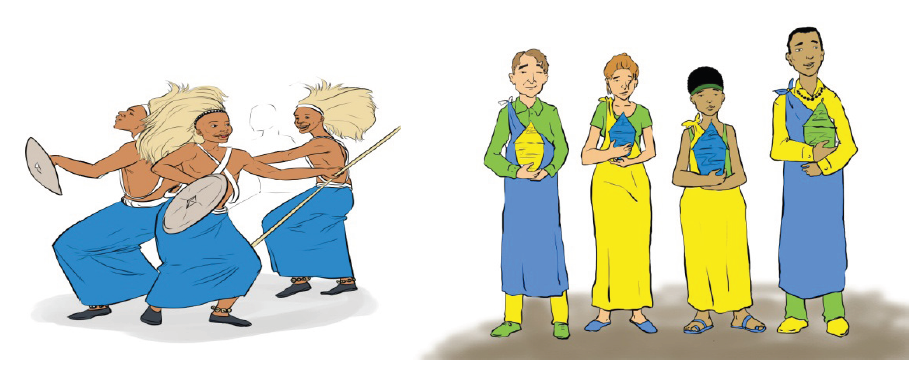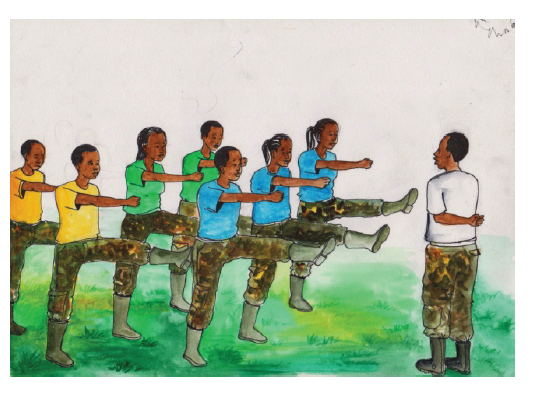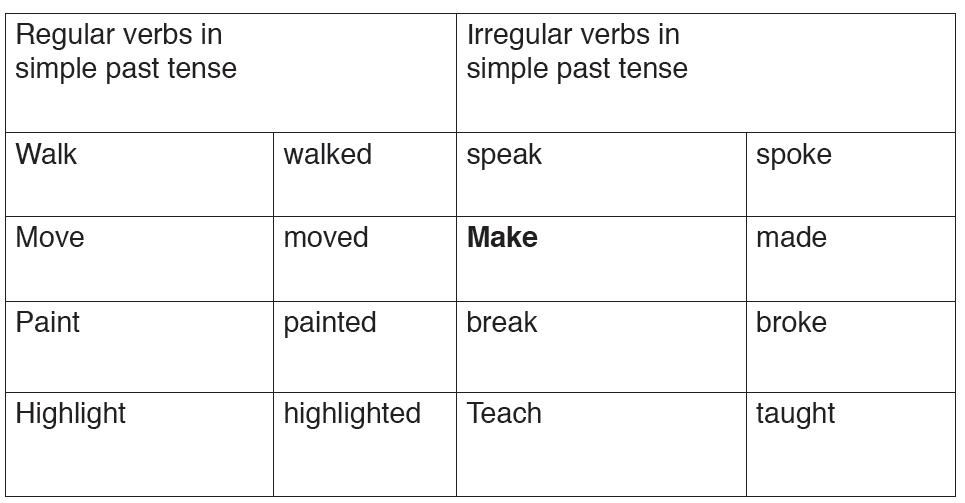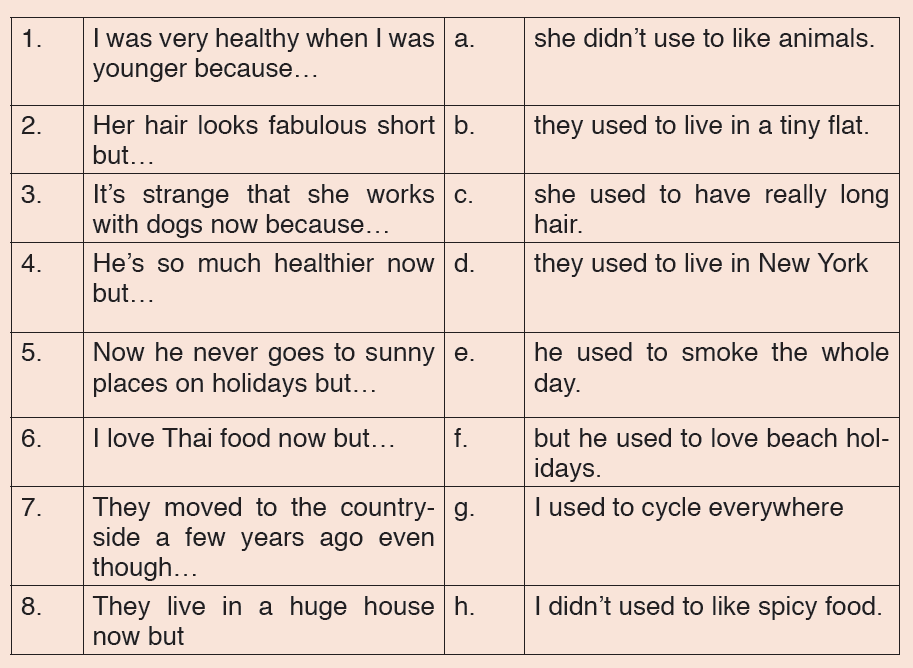UNIT 6: CULTURAL HERITAGE
Key Unit competence: To use a language learnt in the context of cultural heritage
Introductory Activity
Introductory activity:
“ Losing the language means losing the culture. We need to know who
we are because it makes a difference in who our children are.”
By Dottie Le Beau.
In your own words, explain what you understand by the term culture?
Is it important to involve the community in the preservation of culture or it should be a personal initiative?
6.1. Talking about the role of language in culture
5.1.1. Learning activity: Reading and text analysis
Text 1: A poem
Read the poem below and answer questions that follow.
I lost my talk
I lost my talk
The talk you took away.
When I was a little girl
At Shubenacadie school.
You snatched it away:
I speak like you
I think like you
I create like you
The scrambled ballad, about my world.
Two ways I talk
Both ways I say,
Your way is more powerful.
So gently I offer my hand and ask,
Let me find my talk
So I can teach you about me.
Rita Joe
• Comprehension questions
1. The poem above is about culture. Is the poet happy with her culture being eroded or no? Explain your answer.
2. Analyze stanza 4 and explain why the poet is not impressed about her dissolving culture.
3. What does the poet mean when she says” the scrambled ballad about the world”?
4. Which is your favourite stanza from the poem and explain why you like it.
Text 2: Nyamalo hates school
Read the extract of the story below and then, discuss its cultural setting.
That was the end of school for Nyamalo. My father brought her home that weekend. The situation was explained to her and I saw a flood of tears run down her sweet cheeks. She screamed, sobbed and writhed painfully on the floor. “I am not going,” she said. “I am not going.” My mother also shed a tear. I don’t know why Mother shed a tear when she had accepted a blanket, drank beer and smiled when Father was given money. “You will go, my daughter. You are not your own daughter,” Father said resolutely.
“I’m not going,” Nyamalo insisted. “What wrong have I done to you? Mother!
Mother! Why do you forsake me?” Mother shed more tears and only said between sobs. “It … is … finished …” Two days later the bride was prepared for the ceremonial departure from her parents’ home. She was dressed in a loincloth, a lesso which went under her right arm and was knotted above her left shoulder. A beaded belt went around her waist. Around her neck she wore
several strings of beads and one beaded ornament whose bead suspension flowed down to her knees. Her feet were shod in green rubber shoes. On her back she carried a gourd full of milk. A real bride! The bridegroom’s father and mother came to escort her. My father, mother and clan all anointed her with milk cream. They told her to multiply like a pumpkin. May her children fill the world? But they also reminded her that she was now somebody’s wife.
She must live like one. That would bring great honour not only to herself but to all her people. I was asked to accompany her and to stay with her for two weeks to keep her company. We walked in a single file. My sister’s fatherin-law walked ahead, followed by his wife, followed by Nyamalo and, lastly myself. Although customarily the bride was required to promenade along, she defiantly walked clumsily and fast. I heard my father say from behind me when we started off, “This girl will bring us shame.”
(Adapted from They Sold My Sister by Leteipa ole Sunkuli)
Comprehension questions
1. Provide your own title for the above passage.
2. What shows that Nyamalo is a bride?
3. What are some of the cultural practices mentioned in the text?
4. Discuss the similarities and differences between the culture depicted in the above and the Rwanda culture.
6.1.2 Application activities
Discuss the importance of language in the promotion of culture
In pairs, write down a dialogue about your experience when you visited a national heritage (National park, forest reserve, genocide memorial site, museum etc.) and perform the dialogue for the rest of the class.
6.2 Talking about the importance of cultural preservation and national cultural heritage
6.2.1. Learning activity: Reading and text analysis
Text: An article
Read the article below and answer questions that follow:
There is need for more community involvement in preservation of natural and cultural heritage, experts have said.
This was during a workshop on nature and culture conservation organized by the Institute of National Museums of Rwanda in collaboration with the Yale University, Victoria and Albert Museum, and the Museum für Naturkunde Berlin, held at the environment museum in Karongi District on Tuesday.
During the workshop, participants discussed ways to raise both public and political awareness and encourage specific actions to conserve cultural and natural heritage.
It was noted that there is an increase in cultural heritage loss which is caused by criminal acts such as destruction of sites, socio-economic development projects, influence of western cultures, scarcity of resources allocated to cultural heritage conservation, among others.
The experts called for use of latest technologies, such as social media, to promote the preservation of nature, and more involvement of communities to ensure heritage such as songs, poems, fictions are well preserved.
Isidore Ndikumana, acting Director General, Rwanda Museums, called on Rwandans to treasure and protect nature and culture heritage.
“Some people think heritage sites are for foreign tourists. That’s not true; they should understand that the heritage is theirs. Conservation should start at the local level,” he said.
According to Stefan Simon, Director of the Institute for the Preservation of Cultural Heritage, Yale University in the US, cultural heritage is “the root of our identity; it determines who we are and how we live”.
“I have learnt a lot about cultural heritage of Rwanda and Africa, how it links with nature and how it is important to always make sure that residents are profiting from their cultural heritage,” he said.
Johannes Vogel, the director of Museum für Naturkunde, Berlin, said the meeting was an opportunity to learn from others’ experiences.
“Rwanda has made major efforts to address the issues of conservation of nature and culture, creating institutions and political interests and the will to pursue this. People learn new ways of living together, bring different perspectives, culture, ideas together for a more harmonious and forward looking society. We are keen to share and learn from that experience.
European conservation institutions are more advanced. There are practices, ideas, technologies that we are willing to share,” he said.
During the workshop, the Institute of National Museums of Rwanda shared local and regional potentials and challenges in nature and culture conservation.
(Source- The New times, Rwanda posted on 1st September 2016)
• Comprehension questions
1. What is the definition of culture heritage according to the passage?
2. Discuss the importance of national heritage.
3. How, according to the experts can national heritages be preserved
4. Explain the challenges in preserving national heritage.
• Vocabulary activity: Words’ meaning and synonyms
1. Find the meaning of the following words,
a. Perspective
b. Harmonious
c. Potential
d. Scarcity
2. Find the synonyms of the following words:
a. Sobbed
b. Clumsy
c. Ceremonial
d. Customarily
e. Knotted
f. Promenade
g. Writhed painfully
h. Anointed
i. Loincloth
j. Scrambled
6.2.2 Application activities Essay Writting
Imagine that you have been selected as secretary for a meeting that is searching for ways of preserving cultural heritage in Rwanda. Prepare a minute report and present it to the class.
6.3. Traditional school of culture of Rwanda called Itorero.
6.3.1. Learning activity: Reading and text analysis
Picture observation: In pairs, observe the pictures below and describe what you think is taking place.

Text: Traditional school of culture of Rwanda
Read the text below and answer questions that follow.

Itorero was started by King GihangaNgomijana. He was the first King of Rwanda. It dates to pre-colonial times and it started with the aim of teaching Rwandans their values. It would promote peace and unity among Rwandans.
It would teach boys above 14 years of age how to hunt, protect their homes when they became men, and to love their country (patriotism). The girls, on the other hand, had urubohero. They would learn how to take care of their husbands in the future, and weave baskets and mats.
With the coming of the Europeans, things changed. Itorero stopped because the Europeans saw that Rwandans had unified because of it. They wanted to divide Rwandans. And it helped them divide Rwandans into Hutu, Tutsi and Twa. They also promoted hatred among Rwandans. In 1962, Rwanda got independence, but ethnic tensions remained. This is what caused the
1994 Genocide against Tutsi.
After the 1994 Genocide against the Tutsi, the Rwandan government brought Itorero back. It was hard to bring back a lost culture, but Rwandans were happy that their traditional school with additional values was back. It also helped promote unity and reconciliation among Rwandans. It helped the youth know their country’s values. Now it is practiced in secondary schools
and across the whole country.
Adapted from the New Times
• Comprehension questions
a. Discuss the significance of itorero to the Rwandan community.
b. Explain the reasons for the reintroduction of Itorero.
c. In your own words, briefly explain the history of itorero in Rwanda.
d. From your own analysis of the community around you, what are some of the observable differences between citizens that have gone through itorero school and those that have not?
6.3.2. Application activity: Writing a narrative text
Write a narrative story about your first experience in the traditional school of culture (itorero). Word limit 100 words
6.4. Language structure: Past simple tense and the verb
“used to”
A. Regular and irregular verbs in past simple tense
(See notes on past simple tense, unit 1)
Examples of past simple tense of regular and irregular verbs

1. Complete the sentences with the verbs below in the past simple
Walk, enjoy, wash, travel, finish, like, study, listen
1. We…………………. her introductory party very much.
2. Uwineza………………….to his favourite traditional song yesterday.
3. My sister………………………. cultural heritage for her research paper.
4. They…………………………to the genocide memorial site last afternoon.
5. My father ……………………his military boots last month.
6. Last weekend, we……………………….to Nyungwe rainforest for two hours.
7. Cyabitondo……………………. her birthday presents.
2. Activity Sentence and questions in past simple tense.
………………the shop keeper………………10 percent of the price? (to take)
We …………….in the flat when we were in Musanze. (to live)
What…………. you……………Yesterday? (to do)
Mahoro ……………………. her room on Thursday. (to tidy)
Why…………… the baby……………. this morning? (to cry)
He……………. magic tricks at the party. (to do)
3. Use verbs in brackets to complete the story. Put these verbs in the past
simple tense and place them in the spaces provided.
On Saturday, the children……………. (talk) about a day out together in the national park.
The next morning, they……………(go) to the park with two dogs that suddenly disappeared.
So, they……………. (call)them and………(take) them back.
Kwizera………………. (be) very happy to see them again. At lunch time, Eric……………. (go) to the bikes
and…………… (bring) the baskets with some fruits. Then they………………. (play) football. Eric and
Claude…………. (win). Later that evening, they happily……………………(ride) back home.
B. Using “used to” and “to be used to” in sentences
• Notes
“To be used to” is used to talk about things which feel normal for us or those things that we are accustomed to or those things that become a habit to us.
‘Used to +verb-ing’:
Example: Jacky is used to getting up early, so she doesn’t mind doing it.
The above sentence means that, getting up early for Jacky is normal and has become part of her.
“To be used to” can be used when talking about things in the present, past or future as seen in the examples below:
1. Present
• Jane is used to washing her own clothes.
2. Past
• It was difficult when I first started college because I was not used to the amount of work we had to do.
3. Future
• Soon, I will be used to driving in Kigali and I won’t be frightened!
“To be used to” can also be modified into ‘get used’ to. That is, get used
to+Verb -ing. Especially when talking about a change of not normal to normal.
It could be used in any tense as observed in the examples below;
• It took me a few months to get used to living in Kenya. At first everything seemed very different but then gradually, it became normal for me.
• It took me a while, but I got used to speaking another language every day.
“To be used to” expresses actions which were habits in the past but no longer take place.
Example: 1. I used to work as a nurse but I am now a full doctor.
2. He used to jock with me. He is now a grown man. He has become serious.
Exercises
I. Read the sentences and decide whether the form is correct or not
1. Every day now I uses to ride my bicycle to school.
a. Correct
b. Wrong
2 They are not used to drinking alcohol.
a. Correct
b. Wrong
3 We used to go everywhere together. Now, he does not even
speak to me.
a. Correct
b. Wrong
4 She didn’t used to smoke but now, she is able to complete a
packet of cigar.
a. Correct
b. wrong.
5. We used to have dolls when we were young.
a. Correct
b. Wrong
6. They used to live in Nyagatare.
a. correct
b. wrong
7. Stella is used to praying every day.
a. Correct
b. Wrong
8. They are used to parking their cars in the washing bay.
a. correct
b. wrong
9. Francine got using to fly the plane from Kigali international airport to Beijing.
a. Correct
b. Wrong
10. He got used to living a solitary life after all his family perished in a nasty car accident.
a. Correct
b. Wrong
II. Match the beginnings of the sentences to the correct endings as seen in the table below:

III. Construct 12 grammatically well-structured sentences using used to and got used to.
6.5 End unit assessment
1. Imagine that you have been called for an interview in a famous radio station in Kigali, in pairs prepare for an interview guide and responses about ways on how to preserve the Rwandan culture and after, present it to the class.
2. Construct your own sentences using the following words:
Swaying………………………………………………………
Launching……………………………………………………
Elegance………………………………………………………
Heritage………………………………………………………
Sunny…………………………………………………………
Fabulous………………………………………………………
Rhythm…………………………………………………………
Cheer……………………………………………………………
Dolls……………………………………………………………
Quacking………………………………………………………
3. Put the verbs into the correct form (simple past).
I ……………………………….my holiday in Ireland. (spend)
It …………………………great. (be)
I ………………………around by car with two friends and we
visited lots of interesting places. (travel)
In the evenings we usual…………………….to the markets. (go)
One night we even…………………some ikinyarwanda dances.
(learn)
But we……………………….some beautiful rainbows.(see)
She………………ill in the class and the teacher let her go home.
(feel)
4. Tick the correct answer in the exercise below I hadn’t enough money to pay the concert tickets.
Did you know that Keza was my sister?
We had a noise in the middle of the night.
My parents wasn’t very happy with my exam result.
The teacher told the students to sit down.
They never didn’t receive the money that they needed.
She didn’t ate her breakfast this morning.
She didn’t bought the bread yesterday.
